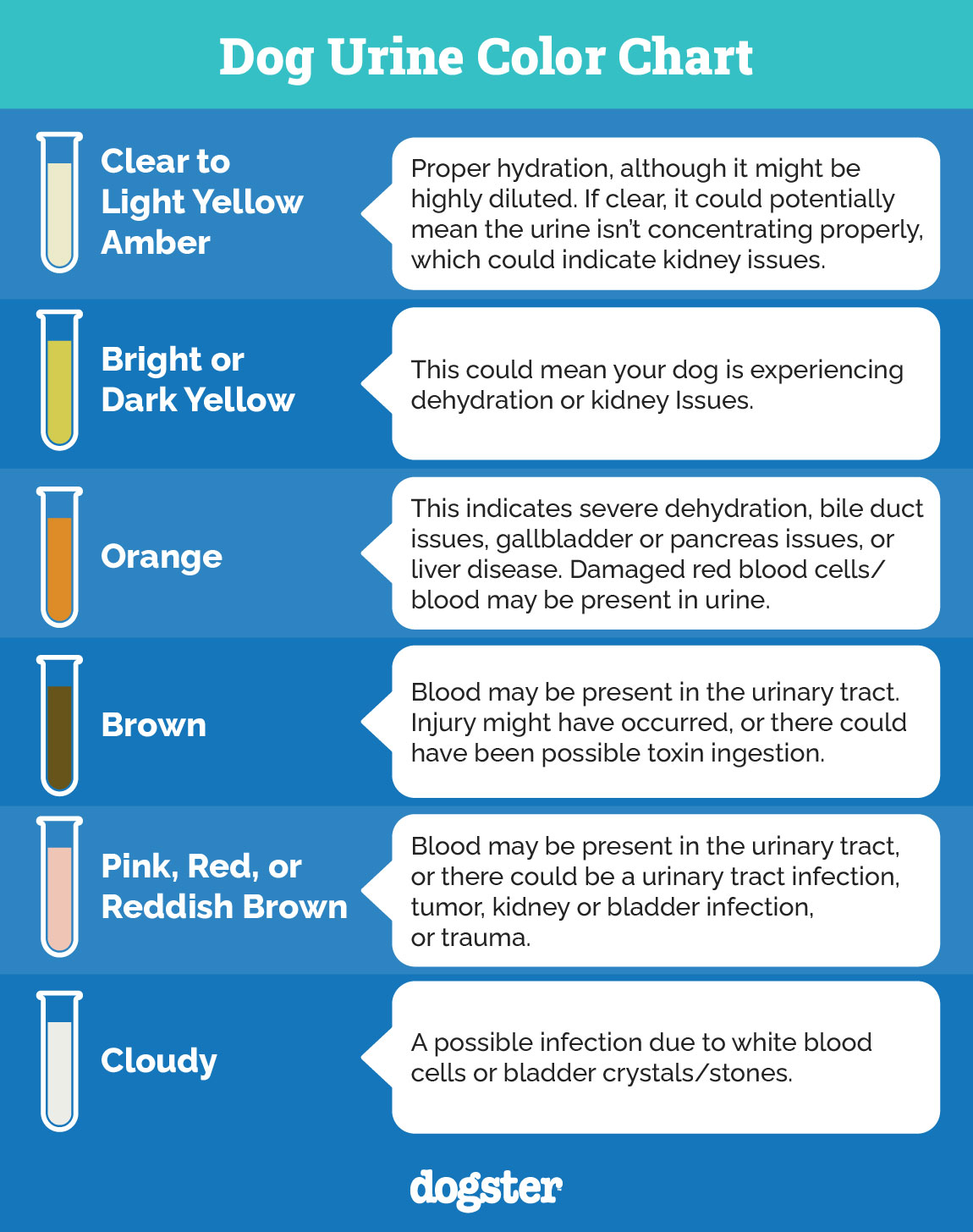Noticing blood in your dog’s urine is a scary sight for any dog owner. Some dogs pee blood while appearing otherwise completely well, while some dogs are showing signs of malaise or discomfort. The veterinary term for blood in urine is hematuria. There is a very long list of causes of hematuria in dogs. While in many cases it is something relatively benign that can be treated, in other cases it is a warning sign of a more sinister disease.
This article will explain what to do if you’ve noticed blood in your dog’s urine, as well as common causes and treatments for hematuria.

Blood in Dog’s Urine: Three-Step Action Plan
If you’ve noticed blood in your dog’s urine and are wondering what to do, follow the below three-step plan:
- Take mental notes. This may help the vet decide what’s going on. Is your dog straining or vocalizing when they urinate? Are they passing more or less urine than normal? Have there been any changes to thirst or appetite prior to this?
- Collect a sample. Use a bowl, container, or jar to collect a urine sample while your dog pees. This can be tricky, but urine tests are one of the key diagnostic steps when investigating hematuria. Your vet will probably ask you to do this, as it can be tricky to collect urine samples once you’re at the vet clinic.
- Contact your veterinarian. Advise the clinic of the problem and arrange the soonest appointment possible. Your vet will start with a physical examination and may recommend some tests.
There are no at-home remedies or diagnostic tests to help a dog that is peeing blood. As there is a long list of possible causes, identifying the cause is very important.

Signs of Blood in Urine
This one may sound straightforward, but there are several different ways that hematuria can manifest. Things to look for include:
- Pink, red, or brown discoloration of urine
- Straining to urinate
- Passing small amounts of urine (or no urine at all)
- Vocalizing when urinating
- Urinating in unusual places (for example, in the house)

Causes of Blood in Urine
While it sounds simple, dogs that are peeing blood have a source of bleeding (or hemorrhage) somewhere in their urinary tract. We say somewhere because the source of bleeding can be anywhere from the kidneys and ureters to the bladder or urethra. Some common causes are summarized below:
- Urinary tract infections (UTI)
- Kidney infection (pyelonephritis)
- Kidney or bladder stones (uroliths)
- Prostatic inflammation or infection (male dogs)
- Cancers of the bladder or prostate
- Bleeding disorders (Clotting problems, snake envenomation)
- Bleeding of unknown cause (idiopathic)
If you’re concerned about your pet’s well-being, we recommend consulting a veterinarian.
If you need to speak with a vet but can't get to one, head over to PangoVet. It's an online service where you can talk to a vet online and get the personalized advice you need for your pet — all at an affordable price!
How Is the Exact Cause Diagnosed?
There are four main ways in which the cause of hematuria is identified:
- History and physical examination. Your vet will start by asking you some questions and performing a thorough examination of your dog to look for any “clues” as to the cause.
- Urine tests. This is a crucial piece in any investigation into hematuria. Some urine tests can be performed in-house, while others need to be sent to a pathology lab. These tests confirm the presence of blood while looking for bacteria, inflammatory cells, and much more.
- Blood tests. These often go “hand-in-hand” with urine tests to check for clotting disorders, inflammation, kidney function, and more.
- Imaging. Some dogs with hematuria will require X-rays or ultrasound, allowing vets to visualize the urinary tract (particularly the bladder and kidneys). A small proportion of dogs will require advanced imaging (MRI or CT scans) if their disease is more complex.

How Is Blood in Urine Treated?
Treatment for hematuria is dependent on the underlying cause. Again, this emphasizes the importance of prompt veterinary attention. UTIs are generally treated with antibiotics and painkillers. Bladder stones need to be dissolved or surgically removed.
Bleeding disorders and snakebites generally require aggressive treatment and intensive care.

Conclusion
If you’ve noticed blood in your dog’s urine, don’t waste time in seeking veterinary care. Thankfully, most causes of hematuria are relatively straightforward and can be treated with medications while your dog remains in your care at home.
See also:
- Why Is My Dog’s Pee Green? 5 Vet Reviewed Reasons & What to Do
- Why Is My Female Dog Peeing in Her Sleep? Vet-Reviewed Causes & Tips
Featured Image Credit: onstockphoto, Shutterstock


















